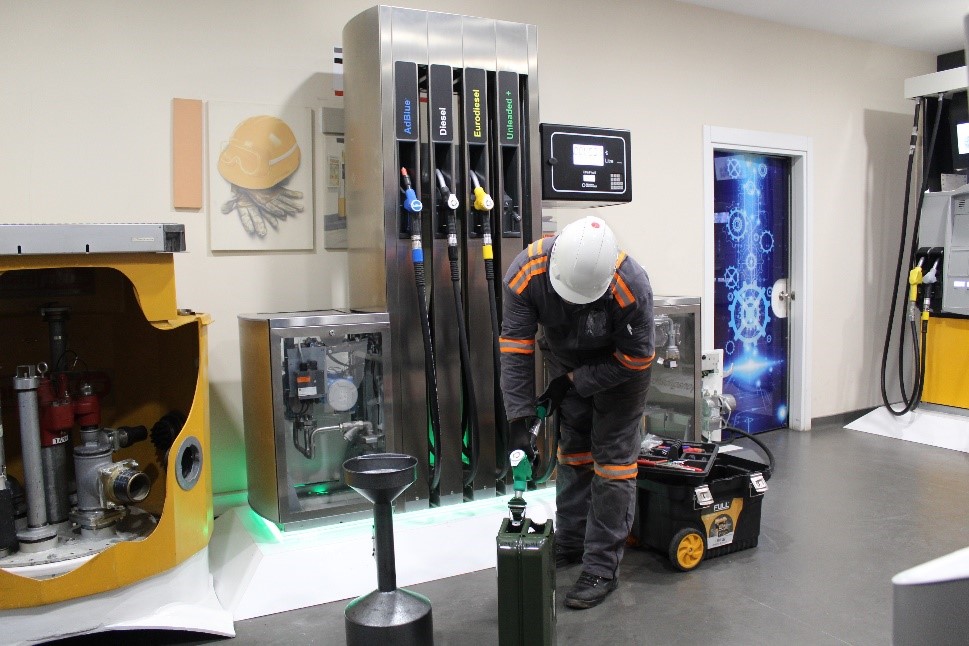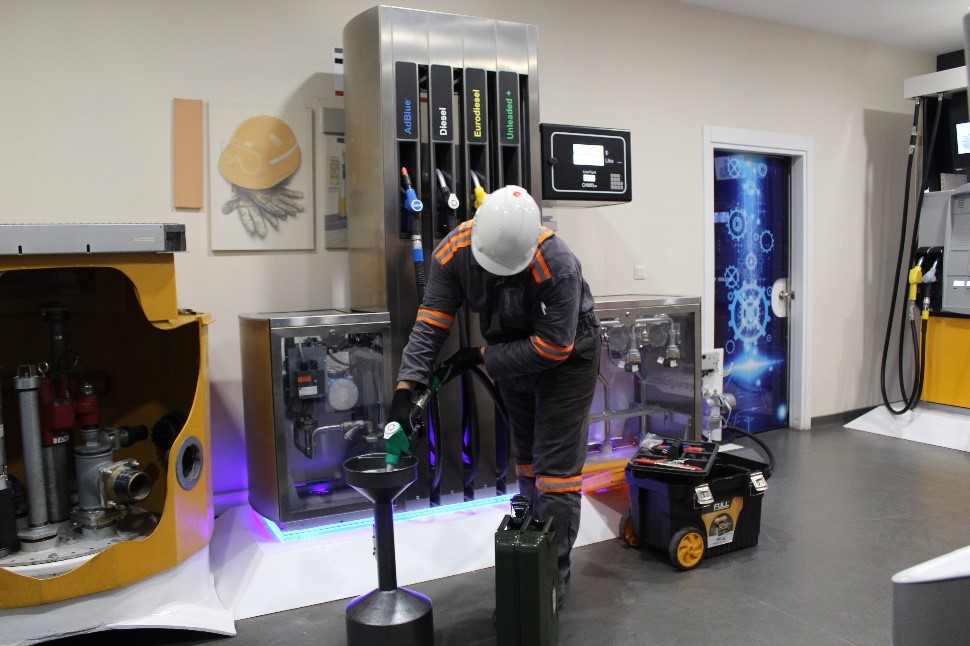Measurement and weighing instrument inspections will now be carried out by TSE
As of January 1, 2020, the inspections of approximately 350 thousand measuring and weighing instruments will be carried out by the Turkish Standards Institute (TSE). Applications for inspection procedures for measuring instruments will be made via e-Government from the Turkish Standards Institute, Measuring Instruments Inspections
menus or through
the TSE application portal https://basvuruportal.tse.org.tr, respectively, and inspection fees will be collected by credit card or money order at the time of application.
The inspection fees for 2020 are as follows:
Maximum flow capacity (Qmax) up to 130 L/min or 100 kg/min (including 130 L/min, 100 kg/min) 64.30 TL
Maximum flow capacity (Qmax) up to 750 L/min or 550 kg/min (including 750 L/min, 550 kg/min) 102.00 TL
Maximum Flow Capacity 750 L/min or greater than 550 kg/min 193.90 TL
Legal Metrology Services
Services related to legal metrology are carried out within the framework of the provisions of the “Measurements and Adjustment Law” No. 3516 and the “Law on the Preparation and Implementation of Technical Legislation on Products” No. 4703. The Law No. 3516 on Measurements and Adjustment is a law on measuring instruments, and it is to ensure the production and use of all kinds of measurements and measuring instruments within the borders of the Republic of Turkey in accordance with the international system of units. Within the scope of the said legislation, procedures regarding the placing on the market, putting into use and inspection of measures and measuring instruments are carried out in accordance with the relevant technical regulation.
Operations related to measuring instruments are evaluated in three stages:
a) Transactions from design to placing on the market,
b) Transactions related to measuring instruments placed on the market,
c) Operations related to measuring instruments in use.
a) Transactions from design to placing on the market
The procedures regarding the placing of measures and measuring instruments on the market are regulated by the Measurement and Measuring Instruments Type Approval Regulation published in the Official Gazette dated 17/10/2008 and numbered 27027.
According to the provisions of the said regulation; In order to manufacture or import measuring and measuring instruments, type approval must be obtained in accordance with the relevant technical regulation.
b) Transactions related to measuring instruments placed on the market
Transactions carried out while on the market after the placing of measuring instruments on the market, within the framework of the provisions of the Law No. 4703 on the Preparation and Implementation of Technical Legislation on Products; It covers Market Surveillance and Inspection (PGD) activities carried out in order to inspect whether the product is produced in accordance with the relevant technical regulation during the placing or distribution of the product on the market or while the product is on the market, and whether it is safe.
c) Operations related to measuring instruments in use
Measuring and measuring instruments are subjected to the following examinations.
Initial examination: It is the inspection carried out before the sale or use of the newly made or assembled measuring instrument, or during the introduction of imported measuring instruments into the country, or after the repair and adjustment of the measuring instrument whose stamps have been canceled at the end of periodic, sudden, complaint and stock inspections, or after it is repaired by the user as a result of the malfunction of the measuring instrument.
Fixed and hard-to-disassemble meters, which are repaired and adjusted by removing their stamps, are stamped with a temporary stamp by the person holding the authorization certificate, if it is not possible to have the first inspection immediately after the repair. The provisional stamp period is fifteen days, with the day following the day on which the provisional stamp is issued, being counted as the first day. Within the temporary stamp period, it is obligatory for meter users to apply to the Ministry Measurements and Adjustment Organization for inspection and stamping procedures. If the fifteenth day coincides with a holiday, the application can be made until the end of the working day of the next first working day. Applications are made through the Ministry’s website or e-government system. Users who do not apply within this period are subject to administrative and penal action in accordance with the provisions of the Measurements and Adjustment Law No. 3516 due to the act of using the measuring instrument whose stamp has expired. It is obligatory to inspect the measuring instruments in question within 3 months at the latest from the date of application.”
Periodic inspection: It is the general inspection carried out by the service for measuring instruments at certain times.
Periodic inspection periods of measuring instruments are monitored in years, not dates. In the calculation of the periodic inspection period, the year in which it is stamped is taken as a basis, and the year in which it is stamped is counted as the first year, regardless of the date it is stamped during the year. The remaining time is calculated from the year following the year in which it was stamped. The application for periodic inspection of measuring instruments is made by applying to the service from the beginning of January to the last day of February of the year following the year in which the periodic inspection period expires. If the last day of February coincides with a holiday, the application can also be made on the first working day after. The measuring instrument inspection fee must be paid before the application. If the inspection fee is not paid, the application will be deemed invalid.
No penalty is applied to measuring instruments that are found to be not working correctly as a result of periodic inspection.
For those who do not apply for periodic inspection on time, even if they have applied later, if it is determined that the measuring instrument is in use, the necessary sanctions are applied by the Ministry in accordance with the provisions of the Law due to the act of using a measuring instrument whose stamp has expired.
Sudden inspection: Sudden inspection is an unannounced inspection at the places where the measuring instrument is located, upon the necessity or notice of the General Directorate and/or the provincial directorate.
Necessary sanctions are applied by the Ministry in accordance with the provisions of the Law due to the act of using measuring instruments that are found to be not working correctly as a result of the sudden inspection.
The repair and adjustment and inspection costs of the measuring instruments that are found to be not working correctly as a result of the sudden inspection are covered by the user.
Complaint inspection: It is the inspection carried out by the General Directorate and/or the provincial directorate upon the application of the user of the measuring instrument or another person in order to determine whether a measuring instrument is working correctly.
Stock inspection: Stock inspection is a form of inspection in which the measures and measuring instruments that are not sold even though they bear the first inspection stamp and are kept in stocks in warehouses, workshops, manufacturing or sales places or in stock that are not yet needed to be used are subjected to them again within the periodic inspection periods.


